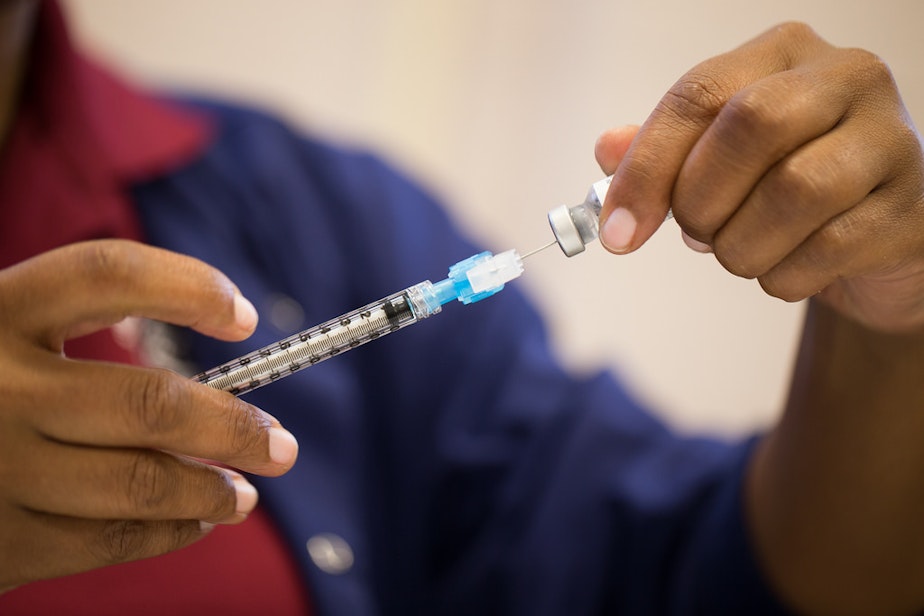New UW Research Center Focuses On The Body's 'Innate Immunity'

The University of Washington is opening a new center focusing on the immune system and how to fight a range of infections and autoimmune disorders.
The hope is to find therapies for infections like Ebola and dengue fever, as well as therapies for autoimmune disorders.
When we think of the immune system, we often think of vaccines. Take the flu shot, for example. When we get a flu shot, the vaccine exposes us to the antibodies so when we do get infected with the flu our body recognizes it and knows how to fight off the virus.
But that’s just one way of harnessing the immune system to fight disease.
The UW’s center will focus on innate immunity, the idea that the body has its own built-in defense system. But at the moment that’s been under tapped.
Sponsored
“Every cell in our body has the ability to mount an innate response,” said Michael Gale, Jr., director of the Center for Innate Immunity and Immune Disease.
Think of it as the body’s immune response on a molecular level: “When a cell gets infected, it responds to the infection by turning on genes whose products fight off the infection,” he said. “The products also work to inform and shape the part of the immune response that occurs later, the adaptive response.”
In other words, innate immune response triggers how the body’s immune system is going to fight off infectious disease like influenza.
On the flip side, when the body’s immune system goes haywire, it can attack itself. That’s the case in autoimmune disorders like rheumatoid arthritis, multiple sclerosis and Lupus.
Gale said researchers have gained a better understanding of the human immune system in the last decade. The region has also become a hub for biotech research and development. The center wants to be a conduit for those efforts with the goal of bringing therapies to clinical development.
Sponsored
Though the center was formed more than two years ago, it officially opens in January.

